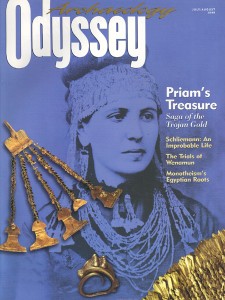Editors’ Page: Why Buy Looted Antiquities?
To ransom them for posterity

Even to use an analogy, I am reluctant to mention the possibility. I mean kidnapping. I cannot say the word without adding, God forbid. But will you imagine it? A child kidnapped. Would you ransom the child? You would sell everything you own and give it to the criminals to get the child back.
No one would tell you not to pay ransom to the kidnappers because it would be buying stolen goods from thieves. The kidnappers are thieves, and worse. Yet we deal with them if we must.
Thus the analogy: If we want to recover looted antiquities, we have no choice but to deal with the thieves—and ransom the loot. Otherwise, it will be lost forever.
Let me extend the analogy. Suppose a kidnapped child were ransomed by other kidnappers who thought they could get even more money by holding the child longer and squeezing the parents. The moral difference between parents ransoming their child and a second set of kidnappers buying the child to make money is obvious. In short, whether the “purchase” of the kidnapped child is right or wrong depends on who the purchaser is and why the purchase is made.
The same is true of looted antiquities. There are two kinds of purchasers of looted antiquities: those who buy—ransom, if you will—objects to make them available to scholars and the public; and those who hide away objects for their own enjoyment or as investments for later sale to other purchasers who also maintain them in secrecy.
Already a library member? Log in here.
Institution user? Log in with your IP address.

